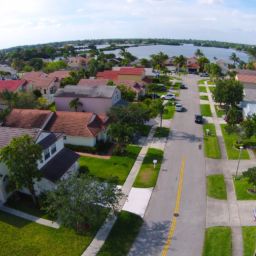
Becoming a commercial real estate broker is fairly a straightforward process. After completing the required courses and passing the state licensing exam, you can become a broker. However, there are numerous factors to consider, such as the benefits and drawbacks of obtaining a commercial real estate license and what you will do as a licensed commercial real estate broker. Read more to find out.
What Do Commercial Brokers Do?
Commercial real estate transactions are typically more complicated than residential ones, even though single-family homes, individual apartments, office buildings, and shopping complexes come under real estate. They might also involve additional parties in the transaction, and those parties may have controversies that the broker must resolve, necessitating superior communication and negotiating abilities.
Depending on the commercial broker’s area of expertise, more specialized knowledge is required. This may include regional tax and zoning regulations, property-level and market-level leasing demand, and structured finance. Commercial real estate brokers typically earn more money because of these skills.
Your Options After Becoming a Registered Broker
Starting your own firm as a registered broker rather than an agent makes it possible for you to earn that greater pay. Alternatively, you could decide to hire a team of agents or work for a commercial real estate brokerage company, earning commissions from successful deals. Another benefit of acquiring a commercial broker’s license is its flexibility in how you wish to do business.
As a licensed broker, you can work as a broker-salesperson at a commercial brokerage firm. You could decide to work as a managing broker and concentrate more on management than on directly negotiating deals. Alternately, you could decide to lead a group of brokers and agents as a designated broker.
Benefits of Becoming a Licensed Commercial Real Estate Broker
Licensed brokers who sell commercial real estate typically have more credibility with prospective customers. Getting that license demonstrates your authenticity in the real estate career while ensuring your comprehensive real estate knowledge. You’ll be recognized as an expert in your industry and the type of property you specialize in listing/selling/buying.
Commercial real estate requires long-term connections with clients who use your services repeatedly, unlike residential real estate, which frequently involves one-time sales or rentals. So, if you are licensed, your clients will trust you to evaluate their long-term business objectives in addition to negotiating the lease or sale of commercial real estate.
How to Become a Commercial Real Estate Broker?
Fulfill Your State’s Real Estate Work Requirements
Before applying for the license, most states demand that you work for a real estate company for a minimum of one to three years (the number of years varies by state by state).
-
Clear the Exam
After finishing the necessary courses, applicants are then tested on federal and state regulations of commercial real estate in written exams. The candidates who pass the exam with 50-60% marks are certified as commercial real estate brokers. However, the educational qualifications don’t stop there. Depending on each state’s criteria, a commercial broker must complete relevant continuing education every two to four years to maintain the license.
-
Apply for a Job at a Real Estate Brokerage Company
Getting a job at a commercial real estate agency is the next step after the license. A brokerage that handles both residential and commercial transactions and a commercial specialist are your two best choices. Additionally, sourcing commercial deals as a fresh real estate agent with minimal experience would probably be more challenging. While you pursue your goal of becoming a commercial real estate agent, you can gain knowledge from other agents’ business transactions and develop a clientele of your own.
-
Pursue Mentorship
Finding a mentor both within your organization and in professional associations is beneficial. Mentors can offer suggestions, knowledge, and direction from an experienced point of view that you lack at the beginning stage of your career.
-
Seek Accreditation
The National Association of Realtors (NAR), the Urban Land Institute, or, more locally, the Real Estate Board of New York are a few examples of the national or state-level professional associations that many commercial real estate businesses require their agents to join. One of the most crucial elements to being a successful commercial real estate agent is joining an association since they provide networking opportunities, continuous education, and supply and service incentives, such as manuals, software, etc. Getting a designation like SIOR (Society of Industrial and Office Realtors) or CCIM (Certified Commercial Investment Member), regardless of whether your job requires it, will help you stand out in the market.
-
Focus on Specialization
With several types of commercial buildings, from industrial net-leased to medical offices, specialization can help you focus and gain a better grasp of your niche. Additionally, specializing aids in reputation-building and better targeting of your clientele. Office, industrial, retail, hotel, and multifamily properties are the “five food groups” of commercial real estate. You can choose one of them and then further sub-specialize in its specific uses.
Becoming a commercial real estate professional is neither a quick nor easy path to success. However, its long-term benefits, both financial and personal, do make the process worthwhile.
Connect with Brighton Escrow, Inc.
If you are looking for more insights on becoming a commercial real estate broker, contact our professionals at Brighton Escrow Inc. today, and we will help you.









